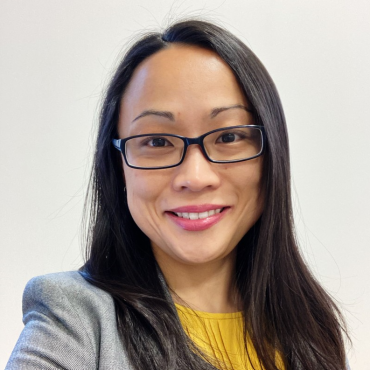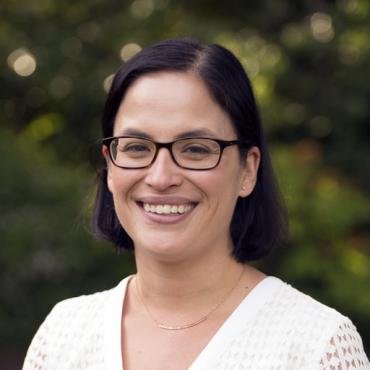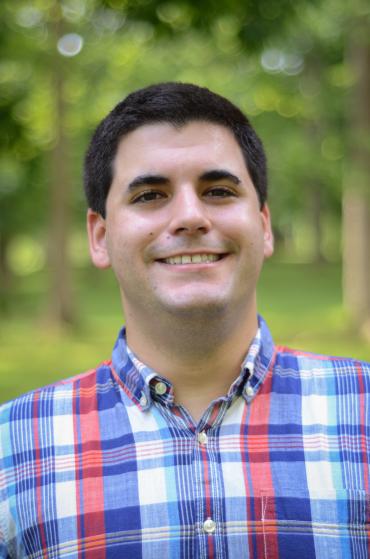Autism Speaks launches Early Career Investigators Advisory Subcommittee
February 27, 2023Autism Speaks has long been committed to providing highly qualified early career researchers with exceptional research training opportunities related to the study of autism spectrum disorder (ASD). Since 2006, we have granted nearly $19 million in predoctoral and postdoctoral fellowship awards to 236 researchers studying the biology of ASD, mental health interventions, sex disparities in autism, service delivery in low resource communities and more.
Now, Autism Speaks is going one step further and establishing an Early Career Investigators Advisory Subcommittee that will operate alongside our Medical and Science Advisory Committee (MSAC). The subcommittee consists of four researchers: Dr. Vanessa Bal, M.Sc.; Dr. Cecilia Montiel-Nava, Ph.D.; Dr. Stephanie Shire, Ph.D.; and Zachary Williams.
“I am honored to invite this distinguished panel of researchers to serve on our Early Career Investigators Advisory Subcommittee,” says Dr. Andy Shih, Ph.D., chief science officer at Autism Speaks. “Each of these researchers are working hand-in-hand with their communities to deepen our understanding of autism across the lifespan and ensure that every autistic individual receives the care they need. They are propelling the field of autism research forward in directions that meet the needs of our autistic community today and in the years ahead. We welcome their diversity of expertise and perspectives to our science advisory committee”.
In addition to advising on grant funding and research opportunities, the subcommittee will provide guidance on career development issues relevant to less senior researchers, allowing Autism Speaks to better support the growth of a new generation of autism scientists.
Dr. Vanessa H. Bal, M.Sc.
Dr. Vanessa Bal earned her M.Sc. in neuroscience from the University of Oxford and her doctorate in psychology from the University of Michigan. She is an associate professor and Karmazin and Lillard chair in adult autism at the Graduate School of Applied & Professional Psychology at Rutgers University. She is a licensed clinical psychologist and director of the Rutgers Center for Adult Autism Services (RCAAS) Psychological Services Clinic.
Dr. Bal’s research focuses on advancing the understanding of autism in adulthood. She was the recipient of the 2010 Autism Speaks Weatherstone Predoctoral Fellowship, in which she worked to develop and refine diagnostic instruments for use with adults with ASD.
Her current projects include developing approaches to inform autism diagnosis across the lifespan and adapting interventions to address adult mental health concerns and foster well-being. Her work also aims to advance understanding of the strengths of people across the spectrum, including those who are minimally verbal, non-speaking or have co-occurring conditions, and the factors that help them achieve their goals later in life.
Dr. Cecilia Montiel-Nava, Ph.D.
Dr. Cecilia Montiel-Nava, a bilingual clinical psychologist, holds a Ph.D. in clinical psychology from the Universidad Central de Venezuela. She is an associate professor in the Department of Psychological Science at the University of Texas Rio Grande Valley, where she is working to close the gap in access to autism services in her majority Latino community. She works closely alongside Autism Speaks as a master trainer for the WHO Caregiver Skills Training (CST) program, and has been instrumental to its implementation in Texas and Latin America.
Dr. Montiel-Nava’s research focuses on four topics: (1) understanding ethnic disparities among children with ASD and other neurodevelopmental disorders, (2) evidence-based interventions that can be carried out by caregivers of children with developmental delays in underserved populations, (3) making diagnostic instruments culturally appropriate, and (4) bilingualism and autism. She hopes to reduce the gap in access to diagnosis and interventions for people with neurodevelopmental disorders in the Rio Grande Valley, ultimately improving quality of life.
Dr. Stephanie Shire, Ph.D.
Dr. Stephanie Shire is an assistant professor in early intervention and early childhood special education in the Department of Special Education and Clinical Sciences at the University of Oregon. She completed her doctoral and post-doctoral training at the University of California, Los Angeles. In 2010, she received the Autism Speaks Weatherstone Predoctoral Fellowship for her study into a novel parent-directed intervention to enhance language development in nonverbal children with ASD.
Dr. Shire’s research interests include the development, testing and deployment of early intervention tools for children with ASD and other neurodevelopmental disorders. She works with community partners to bring naturalistic behavioral interventions to underserved communities and improve access to quality evidence-based services for autistic children. She was one of the developers of the WHO CST program and is involved with its testing and expansion to sites around the world.
Currently, she is working on a project to develop a technology-enabled version of the JASPER ( Joint Attention, Symbolic Play, Engagement and Regulation) social communication intervention that can be delivered by educators of young children with ASD in rural areas.
Zachary (Zack) Williams
Zack Williams is an autistic fourth-year M.D./Ph.D. candidate at Vanderbilt University School of Medicine. He received his undergraduate degree at Yale University and is currently pursuing a joint Ph.D. in neuroscience and hearing and speech sciences. He is the co-chair of the International Society for Autism Research (INSAR) Autistic Researchers Committee and a founding member of the Autism Intervention Research Network on Physical Health (AIR-P) Autistic Researcher Review Board. He was also a member of the workgroup tasked with developing an accessible Request for Applications for the new Autism Speaks Predoctoral Fellowship Program for Autistic Scientists.
Williams’ research focuses on the sensory manifestations of autism in adulthood, the assessment and treatment of co-occurring physical and mental health conditions in autistic adults, and the development of novel questionnaires and clinical measures to assess core and associated features of autism across the lifespan. As a psychiatrist-in-training, he hopes to specialize in the treatment of autistic adults with mood disorders and additional mental health conditions, working to develop evidence-based treatments and care pathways for this specific population.












